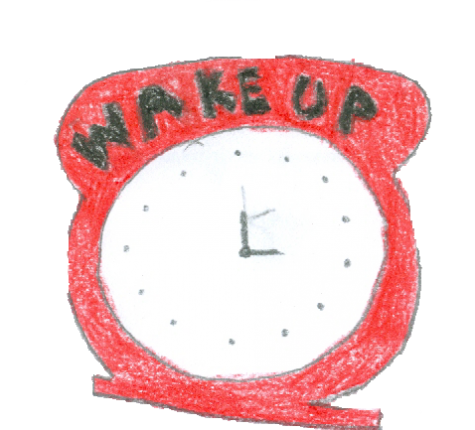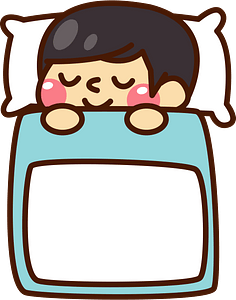How Bedford Sleeps
Good Night, Bedford
Sleep: the precious commodity that every middle schooler dreams about. In our staff meeting, some people thought that sleep would be boring – a real snore that would have our readers counting sheep. Yet, sleep is so much more than a chore or routine. It rests your brain, improves your mood, increases productivity, strengthens your immune system, and improves memory. It can also improve grades, mental health, concentration, and focus. With this in mind, settle down and enjoy these articles about an essential routine for both our physical and mental health.— Will Boberski
Teen Sleep Health Questions with Dr. James Gray

Whether it’s waking up early for before-school activities, or to catch the bus, most BMS students have to wake up from around 6:30AM-7:30AM to get ready for the day ahead. With 6:30AM at the earliest, most BMS students should be sleeping at around 8-10 hours before that at the least, and 9-12 hours before that at the most. Sleep schedules, reading, and digital devices are also things that contribute to either good or bad sleep, and Dr. James Gray is here to tell BMS students why.
Q: How much sleep should a middle schooler have?
A: The American Academy of Pediatrics (AAP) says kids aged 6-12 should get between 9 and 12 hours of sleep per night, and teenagers 13 and up should get 8-10 hours.
Q: Does having a good sleep schedule affect the mood of a person?
A: We have seen some links between lack of sleep and depression and anxiety. High quality sleep is associated with better mood (and better grades!).
Q: Is having a sleep schedule (sleeping at the same time each night) better than just sleeping whenever, or is it pretty much the same?
A: A consistent sleep schedule is best, as the body is programmed to work in a rhythm. Any disruption of the rhythm can make it harder to fall asleep and stay asleep, so you might sleep less.
Q: Is it okay to read before bed?
A: It is okay to read before bed (a book, not a phone or tablet!). A bedtime pattern can be helpful: always brushing your teeth followed by a quick stretch and then a few minutes of reading is okay.

Q: How long before sleeping should a person use a digital device?
A: The AAP recommends no digital devices 30 minutes prior to bedtime– and no digital devices should be in the bedroom at all!
Q: Do night lights and/or hallway lights also affect sleep?
A: It probably depends on the type of light, but bright lights should be avoided for 30 minutes before bedtime and during sleep.
What Do Our Dreams Mean?
Vaccines are being distributed, masks are slowly being peeled off, and the world is gradually returning to normal – but many are still mentally distressed.
What can our dreams reveal about our psychological state? Neurologist Sigmund Freud suggested several times, notably in his book “The Interpretation of Dreams,” that they possess clues to decoding our unconscious, the true reality to which our difficult emotions and desires are repressed.
Today, many psychologists dismiss dream analysis as an ineffective method of therapy or even a pseudoscience, but that hasn’t stopped popular culture and fringe schools of psychoanalytic thought from publishing volumes upon volumes of dream “dictionaries” as a method of entertainment and self-reflection. Let’s take a look at a few examples of common dreams.
Falling
Falling is one of the most common dreams. According to Russell Grant, author of “The Illustrated Dream

Dictionary,” “Falling often expresses a need to let yourself go more and enjoy life more.” It means something isn’t working in your life – you may need to rethink a choice.
Being Chased
Being chased is an extremely common dream, according to Healthline. Being chased in your dreams might reveal something about an upcoming encounter you are worried or anxious about, or an anxiety about something in your past catching up to you.
Being Naked
Dreams about being naked at school or at a social event are less unusual than you think. According to dream analysts, these often suggest social anxiety or being afraid of revealing an imperfection.
Not Dreaming
If you are someone who “just doesn’t dream,” there’s a good chance you’re forgetting your dreams. Freud suggested that dreams which relate to a traumatic experience could be difficult to retrieve from the unconscious. In addition, REM sleep yields more vivid dreams, so if you wake up during non-REM sleep, dreams may only remain in your memory for a few moments before you write them down, according to CNET.
Most of us have had at least some of these “common” dreams– but what makes them so universal? A 2018 study from the psychology journal “Motivation and Emotion” by Netta Weinstein, Rachel Campbell and Maarten Vansteenkiste has created a chart showing the most common dreams. The study claims that these dreams are common due to their similar “themes” and emotions which we all experience.
Some dreams do not fit into this category – it’s up to you to interpret them. According to Max Levy in the 8th Grade Purple Pod describing his dream, “I was on the moon kicking oranges with faces into a field goal, and little aliens started popping up shooting the orange faces, but if the oranges didn’t make it into the goal, they bonked the aliens.” While this dream could most likely only be seriously interpreted by a professional dream analyst, the faces and aliens in this dream could likely be symbols of Max’s unconscious insecurities or imperfections. Of course, it is important to note that strange dreams don’t always conceal a treasure trove of psychological gold – they can simply be reflections of a strange day or experience.
Sleep Survey
Is this why 90% of students feel sleepy during the day?








